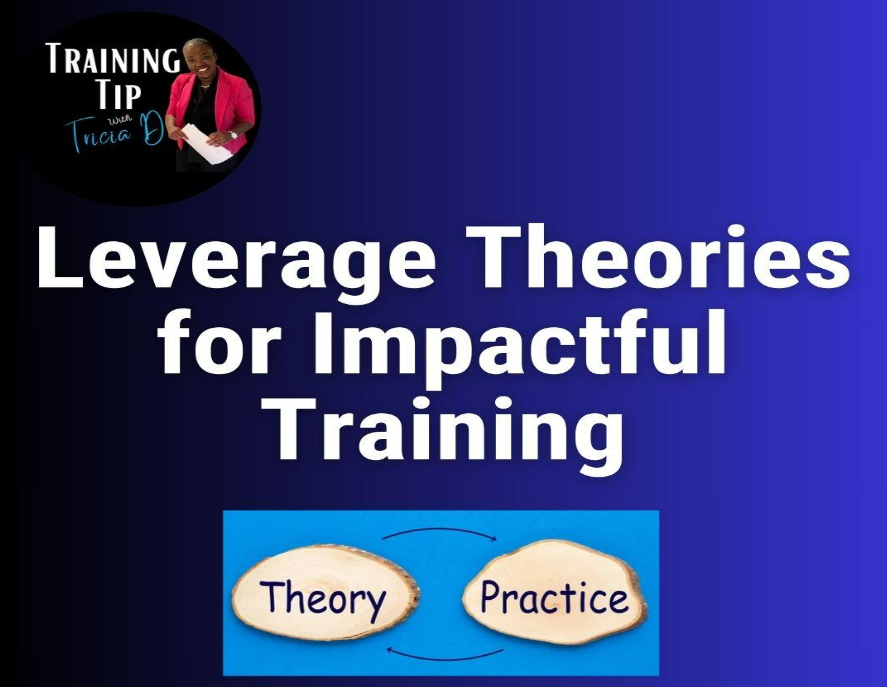Planning on designing and delivering a training? How much do you understand about how people learn?
Creating effective training programs requires a deep understanding of how people learn and what motivates them. Leveraging various learning and motivation theories can help trainers design programs that are not only educational but also engaging and impactful. In this article, we explore Cognitive Learning & Information Processing Learning Theories, Andragogy, Learning Styles Theories, and Motivation Theories. By integrating these theories into your training design, you can create more effective and meaningful learning experiences.
Cognitive Learning & Information Processing Learning Theories
Both theories provide insights into the mental processes involved in learning. They focus on how individuals acquire, store, and process information.
What’s the Use? Applying Cognitive Learning and Information Processing Learning Theories in training helps trainers align their programs with the natural ways learners process information. This approach encourages comprehension and understanding over simple memorization, promoting the practical application of knowledge. By designing training that mirrors these cognitive processes, trainers can improve information retention and usability in real-world situations.
Andragogy
Also known as Adult Learning Theory, Andragogy is a powerful framework that recognizes the unique characteristics of adult learners that differentiate them from younger learners. Adults bring prior experiences, self-direction, and intrinsic motivation to the learning process, which can be leveraged to enhance training outcomes.
What’s the Use? Incorporating andragogy principles into training programs creates learner-centred experiences tailored to adult learners. This approach acknowledges their need for relevance, practical application, and autonomy, leading to more meaningful and effective learning outcomes. Trainers who use andragogy principles can design programs that resonate deeply with adult learners, fostering engagement and retention.
Learning Styles Theories
Learning Styles Theories, such as VARK (Visual, Auditory, Reading/Writing, Kinesthetic), Honey and Mumford’s Learning Styles, and David Kolb’s Experiential Learning, suggest that individuals have distinct preferences for how they learn best. Understanding these preferences allows trainers to create more inclusive and effective training programs.
What’s the Use? By incorporating principles from these theories, trainers can design training experiences that cater to their learners’ diverse needs and preferences. This inclusivity enhances engagement and ensures that all learners can interact with the material in ways that suit them best, leading to better retention and application of knowledge.
Motivation Theories
Theories of motivation such as Maslow’s Hierarchy of Needs, Hertzberg’s two-factor Theory, Expectancy Theory & McClelland’s Theory of Needs provide valuable insights into fundamental human needs and motivations.
What’s the Use? Applying insights from Motivation Theories in training design helps enhance learners’ motivation and fosters active participation. By understanding what drives learners, trainers can create programs that meet these needs, inspire learners, and promote a more engaging and productive learning environment. This understanding helps in designing interventions that motivate learners and sustain their interest and commitment.
By understanding how learners acquire, process, and retain information and recognising adult learners’ unique characteristics and motivations, trainers can create impactful training experiences that lead to meaningful and lasting learning outcomes.
……………
About the author:
Tricia is the Managing Director of ELP Solutions. She is a Corporate Trainer, Trainer of Trainers, Facilitator, HR & OD Consultant, Adjunct Lecturer, Speaker, and Event Host with over two decades of combined experience in helping individuals & organisations achieve their goals.



